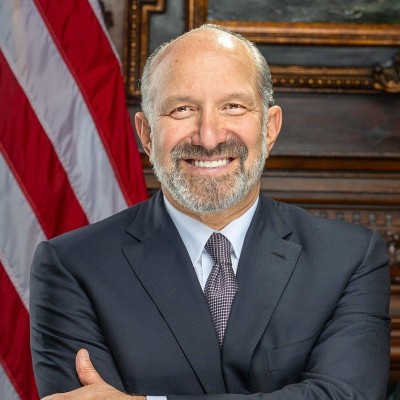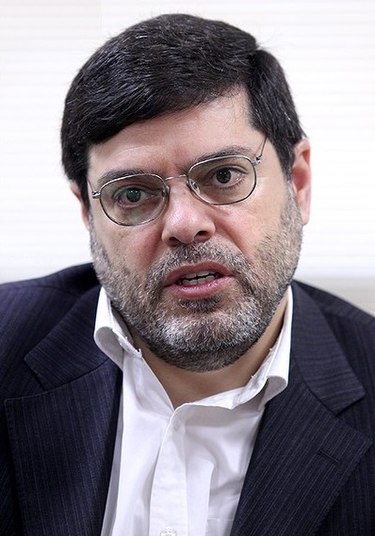The findings are shocking. The fact that previous administrations allowed the United States to become reliant on foreign nations, including our competitors and adversaries, for minerals that are so strategically important to our security and economy is deeply troubling.

What Are Snapback Sanctions?
Snapback sanctions are like having a reset button built into a deal. If Iran breaks the rules of the nuclear agreement, old UN sanctions automatically come back without any new votes or negotiations. It's designed to skip all the politics and make punishment immediate. Think of it like a contract clause that says 'if you violate this, we go back to the harsh terms automatically.' The Europeans have until October 2025 to use this power - then it expires forever.
Europe's Desperate Gambit
Britain, France, and Germany just triggered this snapback mechanism against Iran, even though America walked away from the nuclear deal back in 2018. They're rushing to use their last chance before the power expires in October. But here's the problem: they're doing this while both France and Britain are facing their own financial crises. France's debt hit 116% of GDP and their Economy Minister just warned they might need an IMF bailout. How can you threaten someone financially when you're broke yourself?
The Legal Authority Question
Iran and Russia are saying Europe has no legal right to do this. Their argument? The nuclear deal is already dead because America killed it in 2018. But sanctions expert Richard Nephew, who helped negotiate the original deal, disagrees. He says Europe never officially withdrew like America did, so they still have their rights. It's like being part of a club - America quit, but Europe just stopped following the rules. They're still technically members.
Broke Powers Playing Tough
Here's what makes this embarrassing: France owes 116% of its GDP and might need the IMF to bail them out. Britain owes 96% of its GDP and faces similar warnings. These are the countries trying to economically punish Iran. It's like two people who can barely pay rent trying to financially intimidate their neighbor. The weakness shows, and everyone can see it.
The Enforcement Problem
Even if Europe triggers snapback, China and Russia have already said they won't follow the sanctions. Iran's Foreign Minister warned this move 'will turn Europe into a permanently spent force.' Without China and Russia enforcing the sanctions, Europe ends up punishing only themselves - cutting off trade while Iran's biggest partners keep doing business. It's economic self-harm disguised as strength.
The New World Order Emerges
This crisis shows the world is changing. America used to enforce global rules through economic pressure. Now China and Russia openly defy Western sanctions and nothing happens to them. Iran trades with both powers despite decades of sanctions. The old system where Washington and Brussels could control global commerce is breaking down. New power centers are emerging, and the West's financial dominance is ending.
The Rent-Seeking Empire: How America Stopped Making Things
America went from being the world's factory to being the world's financial police. Manufacturing dropped to just 10% of GDP while finance and real estate became the biggest contributors. They make threats instead of products people actually want. China and Russia trade $237 billion in actual goods - energy, manufactured products, raw materials - while America's main export is threats about who other countries can trade with. It's like being a middleman in a world where everyone decides to trade directly with each other.
The Great Infrastructure Lie: Why the Lights Won't Stay On
Texas Senator Ted Cruz fled to Mexico when his own state's power grid failed in winter. Now they promise AI everywhere and data centers that need 30 times more power by 2035 - but their grid is already at 2.3% vacancy with 4-5 year delays just for basic transformers. Energy Secretary Granholm admits utilities are requesting 'almost seven times as much funding as we have available.' How do you power AI utopia when your own senator runs to another country because the lights don't work?
The Colonial Extraction Racket: France's African Uranium Theft
France bought uranium from Niger for 60 years at 80 cents per kilogram while paying Canada $200 per kilogram for the same uranium - that's 0.4% of market price. In France, one out of every three light bulbs was lit with stolen Nigerien uranium. In Niger, 90% of people had no electricity. After Niger's 2023 coup kicked out the French, uranium prices jumped to market rates overnight - a 25,000% increase. France's entire energy model was built on colonial theft, and now they're going broke because they can't steal anymore.
The Great German Exodus: When Your Own Companies Flee
Germany's biggest chemical company BASF is closing 11 factories at home and moving to Louisiana and China. Two-thirds of German companies have already relocated operations abroad because German energy costs are too high. It gets worse: 37% of German industrial companies are considering cutting production or leaving entirely. The country that once powered European industry is watching its own companies flee to America and China for cheaper energy and less bureaucracy.
The Ultimate Dependence: Building Weapons from Enemy Materials
America imports 95% of rare earth metals from China, 99% of uranium (mostly from Russia and Kazakhstan), and is 100% import reliant on 20 critical minerals. The Pentagon admits 78% of weapons systems depend on Chinese materials. Commerce Secretary Howard Lutnick says we need to 'bring copper production home' - while importing $17 billion worth of copper in 2024. You can't threaten countries you depend on for the materials to build your weapons. It's like declaring war on your own supply chain.
The Bouncer Realizes the Party Moved
America became the bouncer for a global financial system, but the party moved to a different building entirely. China offers loans to Burkina Faso at 3% while Americans pay over 4% to borrow their own dollars. Chinese manufacturers get electricity at half the cost of European competitors. When Iran sells oil directly to China for yuan, when Russia and China trade in their own currencies, when 67% of German companies relocate to avoid Western energy costs - the bouncer realizes he's standing guard over an empty room while the real party happens elsewhere.
The Shadow Fleet That's Not Really Shadowy
The 'shadow fleet' sounds scary until you realize it's just regular ships with different insurance. Russia's 'shadow fleet' has over 500 vessels - about one-fourth of the global crude oil fleet - but these are often the same tankers that used to operate in the Western system, just with Russian or Chinese insurance instead of Lloyd's of London. When a tanker loads Iranian oil, gets Chinese insurance, and delivers to an Indian refinery using yuan payments, none of that shows up in London or New York banking systems. The cargo arrives, the money changes hands, everyone gets paid - but the West can't see it or control it. What makes them 'shadow' is they're invisible to Western financial tracking, not because they're doing anything illegal.
Iran's Private Highway: How Houthis Became Maritime Traffic Controllers
Iran has turned the Red Sea into its private highway while Western ships pay premium prices to go around Africa. The Houthis don't attack Chinese or Russian tankers carrying Iranian oil - only Western-flagged vessels. So Iranian oil gets cheaper transport costs while Western companies face massive insurance premiums and longer Cape of Good Hope routes that add weeks and fuel costs. It's economic warfare disguised as regional conflict. Every Western ship that has to detour around Africa makes Iranian oil relatively cheaper and more competitive. The Houthis aren't just Iran's military allies - they're Iran's maritime trade protection service, turning what should be international waters into selective passage based on who you trade with.
The Blind Spot Empire: What America Can't See Anymore
America built its sanctions power on seeing every major financial transaction through dollar-based systems. But now when China buys Iranian oil with yuan, or Russia sells gas to China for rubles, or Iran trades oil for manufactured goods through barter, none of that shows up in US financial intelligence. With China importing 97 million metric tons of sanctioned oil and handling direct currency swaps, these transactions happen completely outside Western banking systems. It's like the US used to control the main highway and could monitor all traffic, but now there are dozens of back roads they don't even know exist. You can't sanction what you can't see, and you can't see transactions that never touch your systems.
The Ice-Chopper Nation: Cutting Your Own Foundation
America is like someone standing on ice while cutting away every piece that supports them. Each tariff, each sanction, each threat of secondary sanctions forces more countries to build alternatives to the US system. The US withdrawal from the Iran deal pushed Europe toward Russia and China. Threatening allies for trading with sanctioned countries teaches them they need non-American alternatives. With China-Russia trade hitting $237 billion and growing 70% since 2021, countries see there's a successful alternative to US-dominated commerce. America isn't just sanctioning enemies - it's forcing the entire world to choose sides, and increasingly they're choosing the side that doesn't try to police their trade relationships.
The Dollar's Last Stand: When Nobody Needs Your Permission
Everything used to have to clear through New York because that's where the dollar system lived. Whether you bought oil in Singapore or sold wheat in Argentina, those transactions had to pass through US-controlled systems. But now China handles 14.6% of its oil imports from Iran directly, and Russia-China trade worth $237 billion settles in Shanghai and Moscow without needing New York's permission. The US built the ultimate tollbooth on global commerce, but superhighways are being built that completely bypass it. When Iran sells oil to China for yuan, that gets deposited in Chinese banks and never needs to 'clear' through American systems. You can't control what doesn't need your permission.
The Brutal Question: What Does America Actually Make?
That's the brutal question America faces: what does it actually produce that the world needs? The US became heavily dependent on being the middleman in global finance and the enforcer of trade rules. America's main 'exports' are now military equipment (but who wants to buy from a country that sanctions you later?), financial services (but countries are building alternatives), technology (but China's catching up), and agricultural products (but tariffs make them expensive). When everyone stops needing your permission to trade and builds their own financial systems, what's your value? The US economy was built around importing cheap goods and exporting expensive financial services. When that model breaks down, there's not much actual production left underneath.
What the Officials Are Really Saying
The explosive growth of AI is posing this big question: Are we going to have enough energy to power AI? We need utilities requesting almost seven times as much funding as we have available.

The substance of our industry is under threat. At the current price level, it will mean an automatic deindustrialization for Germany. We risk turning from an industrial country into an industrial museum.

The idea is to bring copper home, bring copper production home. We need that kind of production in America, it's important - but we imported $17 billion worth of copper in 2024.
The Europeans are playing a very dangerous game. They think they can use financial pressure to force Iran's compliance, but they're miscalculating Iran's resolve and regional support.

Europe's debt crisis makes their threats hollow. When you owe more than you produce, your financial weapons lose their power.


